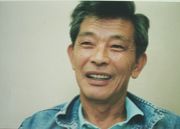上智大学での講演です。
講師:Jonathan Okamura (ハワイ大学教授)
日時:7月9日(水)17:00-18:30
場所:上智大学アメリカ・カナダ研究所(中央図書館7階721A号室)
使用言語:英語
対象:大学院生・教員
参加ご希望の方は7月3日(木)までにお申し込みください。
(電話:03-3238-3908/メール:instacs@sophia.ac.jp)
Abstract: In this year’s elections in Hawai‘i, Japanese Americans are
running in four of the five major races (governor, lieutenant
governor, U.S. Senator, and U.S. Representative) and also for many of
the seats in the state legislature. They continue to be substantially
over represented since the 1960s in the legislature (nearly 40
percent) and in Hawaii’s Congressional delegation of two senators and
two representatives, despite ranking third in the state population
after Whites and Filipino Americans and declining to fourth after
Native Hawaiians sometime in the current decade. The factors that
contribute to the maintenance of Japanese American power in electoral
politics in Hawai‘i will be discussed by reviewing the significance of
ethnicity in campaigning by candidates and in voting by Japanese
American and non-Japanese voters and the nature of the “Japanese vote”
and how candidates, including non-Japanese, seek to attract it.
講師:Jonathan Okamura (ハワイ大学教授)
日時:7月9日(水)17:00-18:30
場所:上智大学アメリカ・カナダ研究所(中央図書館7階721A号室)
使用言語:英語
対象:大学院生・教員
参加ご希望の方は7月3日(木)までにお申し込みください。
(電話:03-3238-3908/メール:instacs@sophia.ac.jp)
Abstract: In this year’s elections in Hawai‘i, Japanese Americans are
running in four of the five major races (governor, lieutenant
governor, U.S. Senator, and U.S. Representative) and also for many of
the seats in the state legislature. They continue to be substantially
over represented since the 1960s in the legislature (nearly 40
percent) and in Hawaii’s Congressional delegation of two senators and
two representatives, despite ranking third in the state population
after Whites and Filipino Americans and declining to fourth after
Native Hawaiians sometime in the current decade. The factors that
contribute to the maintenance of Japanese American power in electoral
politics in Hawai‘i will be discussed by reviewing the significance of
ethnicity in campaigning by candidates and in voting by Japanese
American and non-Japanese voters and the nature of the “Japanese vote”
and how candidates, including non-Japanese, seek to attract it.
|
|
|
|
|
|
|
|
アジア系アメリカ人研究会 更新情報
-
最新のアンケート
-
まだ何もありません
-
アジア系アメリカ人研究会のメンバーはこんなコミュニティにも参加しています
人気コミュニティランキング
- 1位
- 暮らしを楽しむ
- 77426人
- 2位
- 写真を撮るのが好き
- 209463人
- 3位
- 空を見上げるのが好き
- 139119人
























